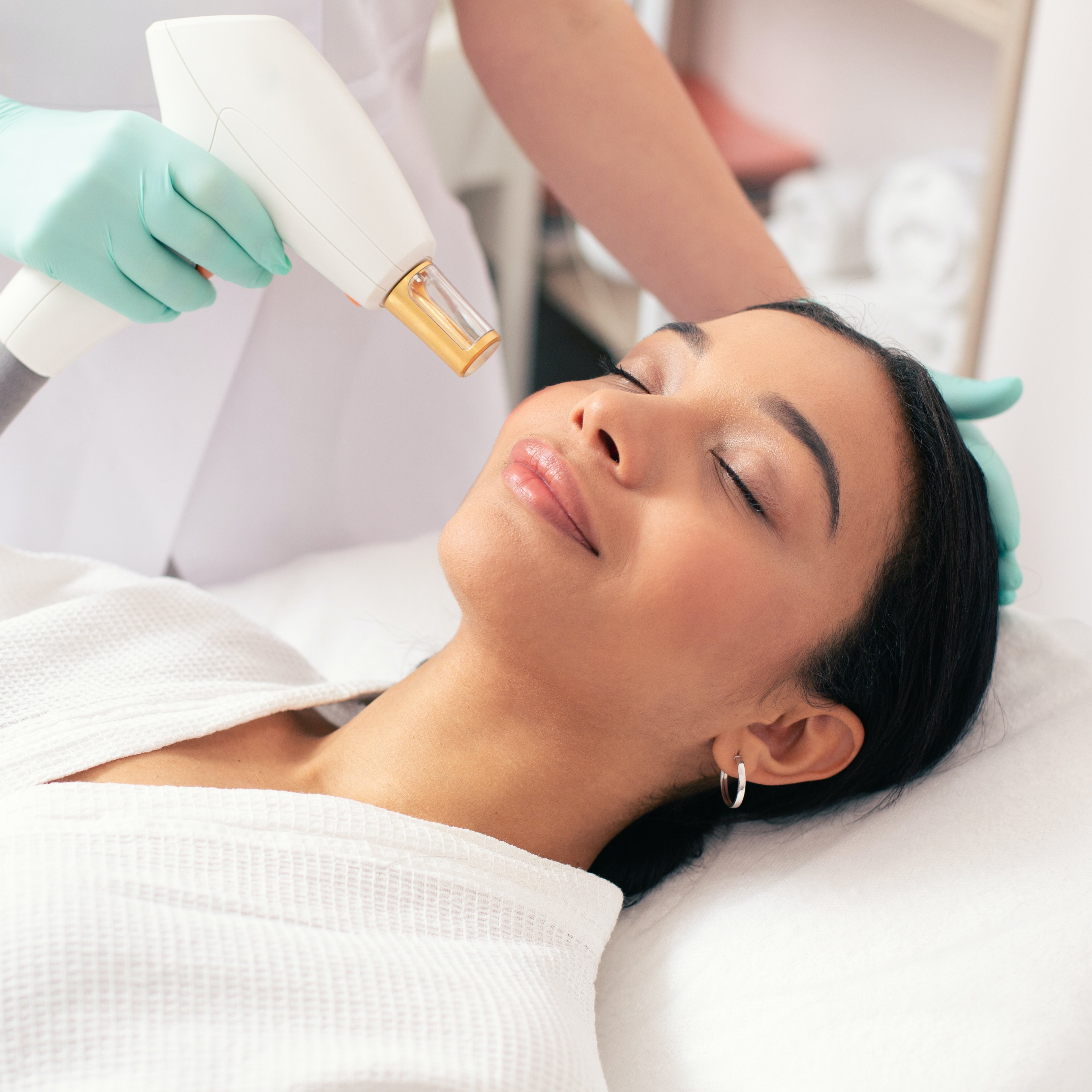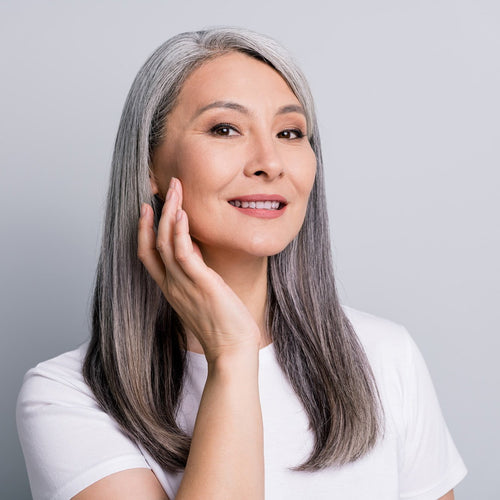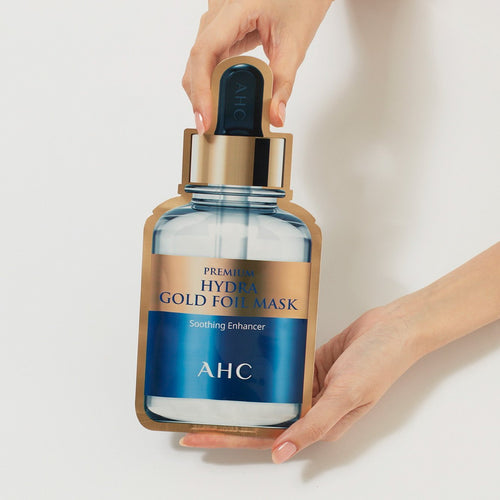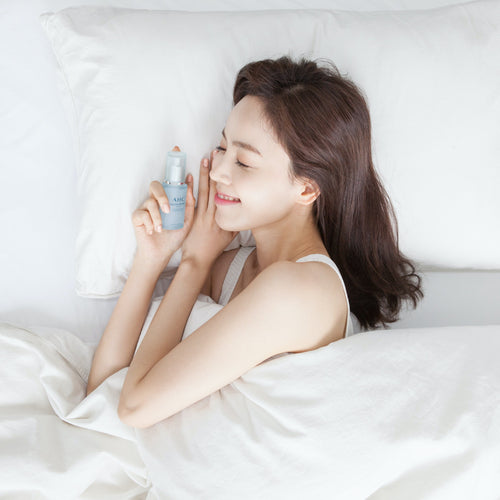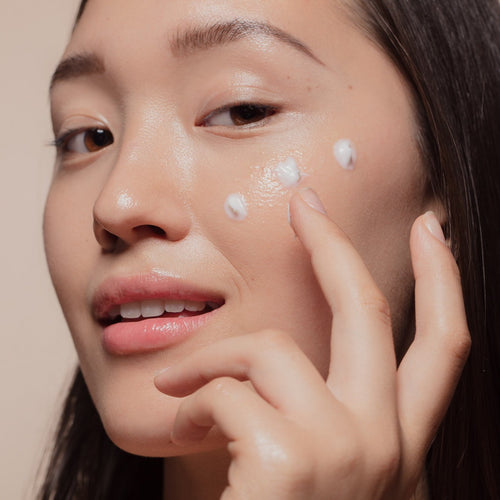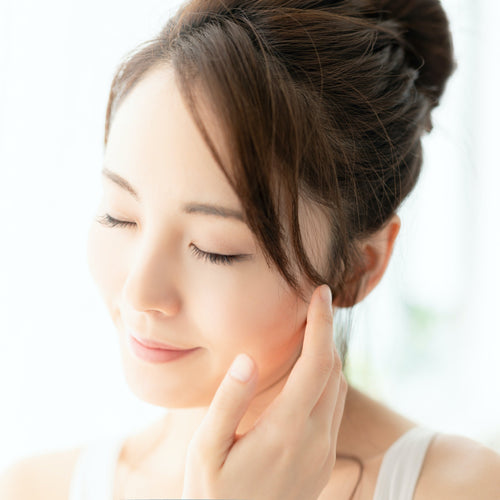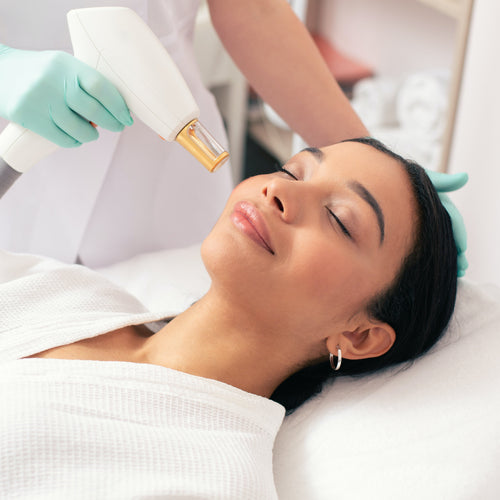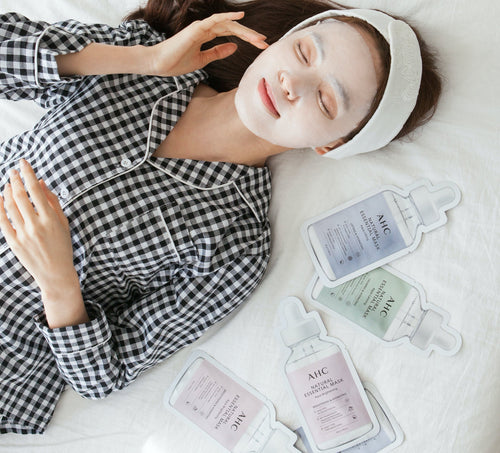We understand that breakouts cause instant anxiety, but they are only half the problem. The real question is how to get rid of acne scars long after the blemishes have disappeared. Acne scars are permanent textural changes and indentations that occur when the epidermis is damaged, and the deeper layers of your skin have undergone distress. When your skin is unable to restore itself to original condition after an acne wound, granulation tissue made up of collagen fibres form from the inside as an attempt to heal the damaged skin. This replacement tissue heals the affected area but can remain visible in the form of scarring.
How to remove acne scars?
Acne-scarred skin looks and behaves differently to the rest of your complexion. Scar tissue has fewer elastic fibres and causes the skin to look and feel harder. Due to less circulation and moisturisation in the affected area, such skin often dries out and requires more hydration levels. The answer lies in a dual-targeted approach, comprising professional aesthetic treatments and innovative skincare products.
Aesthetic Treatments
1. IPL (Intense Pulsed Light)
The Process: IPL uses narrow pulses of light to kill acne and target red, inflamed, and discoloured acne. This photofacial treats active lesions (pimples), and prevents new acne from forming. IPL is safe for most people but can carry potential complications such as pain and swelling.
The Verdict: Although IPL is an effective and targeted treatment to prevent acne, it is not a one-shot wonder, and can be pricey. You will need to prepare your wallet for at least three to five sessions, not including maintenance. It is best to speak to a dermatologist before undergoing this therapy.
2. Microneedling
The Process: Tiny needles are inserted into the area of injured skin to help stimulate collagen production. As acne-scarred skin is lacking in localised collagen, this type of treatment can make a huge difference.
The Verdict: Microneedling “tricks” the skin into self-healing to speed up collagen production, making it suitable treatment for acne scarring. Moreover, when combined with radiofrequency, it effectively treats various signs of aging skin with minimal risks and downtime. However, multiple sessions are required to achieve optimal outcomes.
3. Dermal Filler
The Process: Think fillers only exist to give you Hollywood lip styles? They can also fill out particularly hard-to-smooth acne scar indentations, such as ice pick and boxcar scars. Fillers stimulate collagen production, improving the look and quality of damaged skin.
The Verdict: Entrust this process to an experienced injector who will treat your acne scars knowledgeably and efficiently. Bear in mind, too, that each filler has a lifespan. While you may think it is over and done in one appointment, there is a probability that you will need to return to the doctor’s office for a touch-up in the years to come.
Skincare Products
If you have acne-prone skin, rather than looking for solutions on how to remove acne scars entirely, consider how you can manage your complexion over time instead. Stick with an easy-to-follow daily skincare routine with clinically proven products to improve the skin’s look and feel. AHC’s Peony Bright range is clinically proven to reduce skin hyperpigmentation and improve skin tone in just 4 weeks*. Follow these product steps to make smoother and more even-toned skin a reality:
Step 1: Basic Care = Cleanse & Tone Twice a Day

AHC’s Peony Bright range is clinically proven to reduce skin hyperpigmentation and improve skin tone in just 4 weeks.
Washing your face twice a day is essential in minimising acne production. Do so first thing in the morning to get rid of the environmental waste gathered on your skin and wash away makeup, oil, dirt, and debris at the end of the day.
We love: AHC Peony Bright Deep Cleansing Foam. The cleanser’s wonderfully thick and foamy texture allows it to penetrate deep into your pores and cause impurities to stick to it, thus drawing it out and leaving your complexion purified. It contains hydrators that acne-prone skin needs, such as water, glycerine, and soothing botanical extracts. The result is thoroughly clean yet perfectly hydrated skin.
Using a toner removes excess residue after cleansing and is a must-have product for your skincare routine. It also helps to hydrate skin, and that means it will not overcompensate for lack of water by producing even more oil. This condition occurs when the skin needs to restore its water balance to prevent dehydration. Its production can also result in acne breakouts.

AHC Peony Bright Clearing Toner contains enzymes that help renew cell turnover.
We love: AHC Peony Bright Clearing Toner, as it gives acne-prone complexions the hydration needed and a cleansing refreshment, all in one swift dose. Your skin will receive benefits from fruit enzymes that exfoliate dead skin cells for an immediate glow in a gentle yet intensive way. Skin brightening pink peony and moisturising kombucha boost your complexion's radiance and provide the skin with ideal and balanced hydration. This toner is also clinically proven to help remove dead skin cells for a refined overall skin complexion**.
Step 2. Intensive Care = Treating with Serum and Spot Corrector Daily

Brighten your skin from within with AHC’s Peony Bright Luminous Serum
A serum is probably one of the most vital product steps in your skincare routine due to its efficacy. Its small molecular size allows it to penetrate the deeper layers of skin to give it a clinical dose of treatment ingredients. For skin blemished by acne scarring, apply a brightening serum before you layer on your moisturiser. Serums work on your skin’s overall tone and texture for a complexion that looks less damaged, and instead, more radiant and youthful.
We love: AHC’s Peony Bright Luminous Serum. It is a blend of skin-brightening ingredients, such as vitamin C and plant extracts Palmaria palmata, which clarify and brighten skin tone. Acne-scarred areas contend with decreased skin hydration, so this illuminating serum is wonderfully moisturising and instantly treats both dullness and dryness. It has also been clinically proven to reduce skin pigmentation and improve skin tone in 4 weeks*.
You will find a spot corrector incredibly helpful when there is a spot of bother or a residual acne scar that requires your extra attention. In a small tube applicator, spot correctors deliver potent formulations in a serum or moisturiser formula with much precision. When used continuously, spot correctors can also help to fade the appearance of acne scars over time.

Banish spots and correct pigmentation issues with AHC Peony Bright Spot Corrector.
We love: AHC Peony Bright Spot Corrector, as it contains 3% niacinamide, an anti-inflammatory ingredient known for its abilities to treat blemished skin and improve uneven skin tone. Included in the formulation are critical hydrators that oily skin needs, such as ceramides to help treat weakened skin, and plant-derived ingredients that facilitate a fast-working treatment.
Step 3: Complete Care = Hydrate with Moisturiser Twice a Day
Acne-prone skin is more inclined to excessive oil production. However, keeping the skin sufficiently hydrated is a process that should not be skipped. Acne-scarred areas are already less moisturised, with fewer elastic fibres that make skin feel rougher and look harder—as such, keeping it significantly hydrated aids your complexion’s texture. The best way to hydrate acne-prone skin comes in the form of a nurturing moisturiser that will help to brighten it and improve its health for improved oil regulation.
We love: AHC Peony Bright Toning Up Cream, not just for its hydrating properties – essential for dealing with acne scarring – but also its ingredients of peony extract and pink plankton, which tone up the skin instantly. A rapidly absorbing formulation, it produces a noticeable and immediate bright and lively complexion, as your skin is naturally brought back to health and vibrance.
Disclaimer:
*The regime of serum, spot corrector, cream, compact is clinically proven to reduce skin pigmentation in 4 weeks
**Using cleanser and toner together is clinically proven to help remove dead skin cells and refine your complexion
References:
Clinical, Cosmetic and Investigational Dermatology, Dove Press Journal
The role of facial sebum secretion in acne pathogenesis: facts and controversies, Clinics in Dermatology

